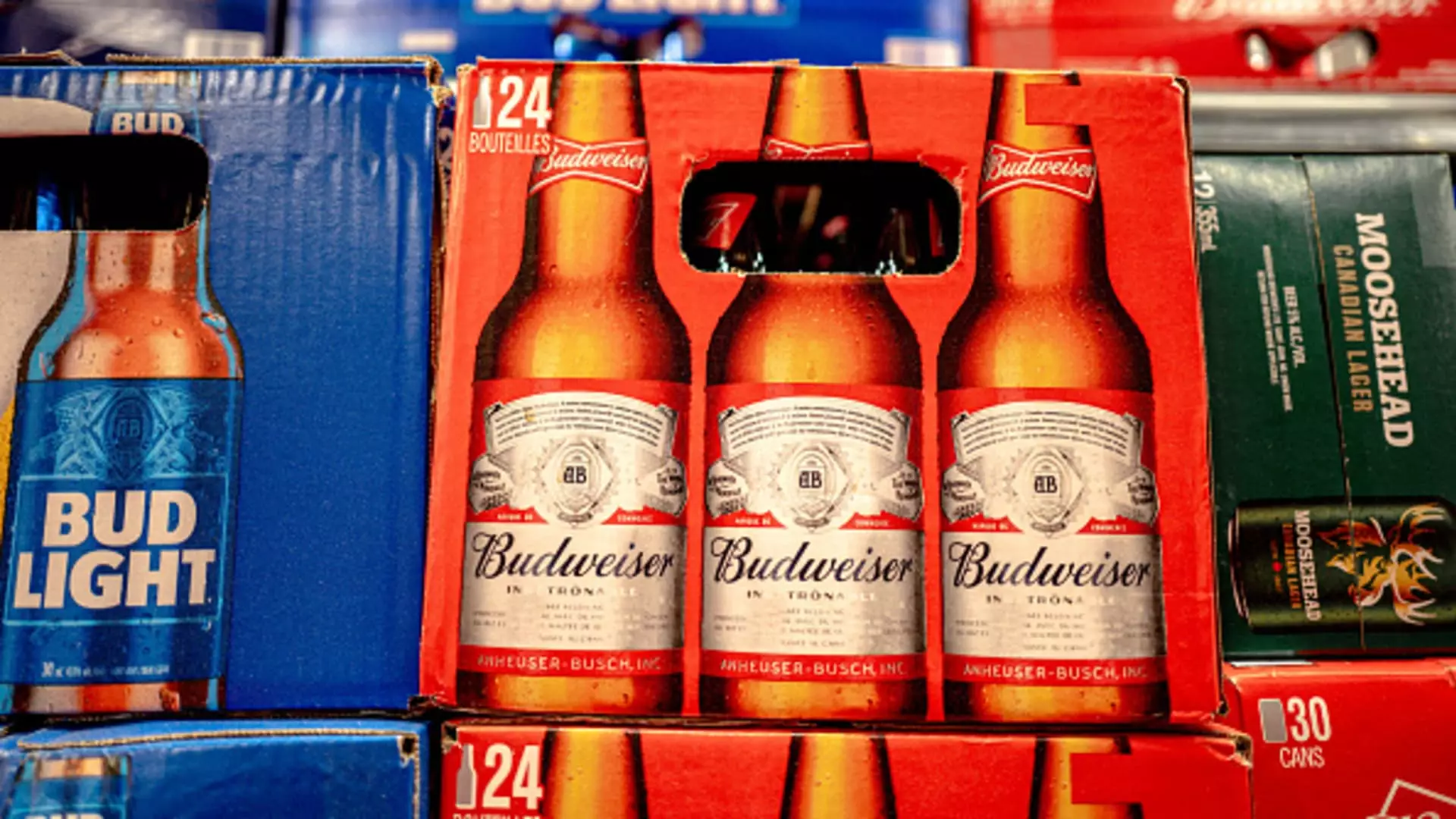On Wednesday, shares of Anheuser-Busch InBev (AB InBev), the world’s foremost brewing entity, surged nearly 9% following the company’s disclosure of fourth-quarter sales that exceeded expectations. Reports indicated that the beer giant, known for its iconic brands such as Budweiser and Corona, achieved a 3.4% increase in quarterly revenue, totaling $14.84 billion. This performance stood in stark contrast to the 2.9% decrease projected by analysts from LSEG, who had forecast revenues of $14.05 billion. By the end of the trading day, AB InBev’s shares settled 8.5% higher, echoing investor optimism despite the backdrop of a dip in sales volume.
Over the full year, AB InBev recorded a modest sales rise of 2.7%, culminating in approximately $59.77 billion. This figure exceeded the $59.3 billion anticipated by market experts. Notably, however, total sales volumes declined by 1.9% in the fourth quarter and 1.4% throughout the year. CEO Michel Doukeris attributed these downturns to weakened consumer demand in key markets such as China and Argentina, labeling the situation as “very abnormal” and suggesting that industrial challenges were dampening consumer confidence.
AB InBev’s struggles in China and Argentina underline the complex and often precarious nature of global markets. Doukeris’s remarks about industrial weakness affecting consumer sentiment reflect a broader trend of economic uncertainty impacting spending habits across various sectors. The company’s volume decline was primarily linked to a decrease in beer consumption, contrasting sharply with the performance of its non-beer brands, such as Cutwater Spirits and Brutal Fruit Spritzer, which continued to attract consumer interest. The beverage industry is witnessing a transformative phase, where products beyond traditional beer taps into changing consumer preferences.
Despite these challenges, Doukeris remains optimistic about the overarching resilience of the global beer market. He noted, “Market momentum is good,” asserting that the beer category remains vibrant and capable of recovery. However, the forecast for 2025 also acknowledges potential hurdles, particularly regarding foreign exchange risks exacerbated by the dollar’s strength, which could influence pricing and profitability.
Looking ahead, AB InBev is charting an aggressive path toward EBITDA growth in 2025, aiming for an increase of 4% to 8%. This guidance follows a commendable 10.1% rise in its fourth-quarter EBITDA, and an 8.2% increase throughout the year. These ambitious targets signify the company’s commitment to navigating the changing landscape of consumer preferences and market dynamics with strategic foresight.
Interestingly, the transition towards lower alcohol consumption is a phenomenon that is reshaping both AB InBev and its competitors. The company’s leadership recognizes this shift, as evidenced by the broader industry movements, including Carlsberg’s pivot towards non-alcoholic beverages. Doukeris aptly described this trend as a “global trend,” suggesting that non-alcoholic products are expanding the market by inclusively catering to a larger audience and creating more opportunities for consumption.
The rising demand for non-alcoholic options illustrates a growing health consciousness among consumers. As consumers become more aware of calorie intake and lifestyle choices, the beverage market adapts, promoting products that are perceived as healthier alternatives. Doukeris emphasized the appeal of lower-calorie non-alcoholic beers over traditional soft drinks, highlighting this as a significant factor in shifting consumer behavior.
In this light, AB InBev’s future strategies may involve further enhancements to its portfolio, possibly integrating more non-alcoholic offerings to capitalize on this trend. By diversifying its product range, the company can meet the evolving needs of modern consumers, many of whom identify as “beer lovers” but are seeking options that resonate with their health-oriented lifestyles.
While AB InBev faces substantial headwinds in terms of declining volumes in key markets, the company demonstrates resilience and strategic adaptability in its financial performance. The optimistic sales forecasts for 2025, paired with an increasing focus on non-alcoholic beverages, showcase AB InBev’s determination to thrive amid a changing consumer landscape. Ultimately, navigating the complexities of global markets and shifting preferences will be critical for AB InBev as it strives to maintain its leadership position in the beverage industry.

